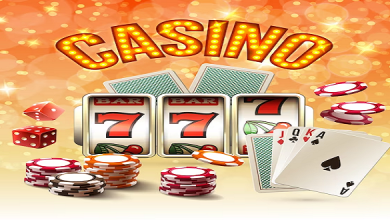The Cultural Significance of Gambling in Different Societies

Gambling, a practice deeply rooted in human history, transcends geographical boundaries and cultural divides. From the glitzy slot machines of Las Vegas to the underground world of slot gacor in Indonesia, the act of gambling takes various forms, and its cultural significance varies significantly across societies. In this exploration, we delve into the world of gambling, shedding light on how different societies perceive and engage in this age-old pastime.
I. The Universality of Gambling
Gambling is a universal phenomenon that has existed for centuries. It’s a pursuit that transcends time and space, resonating with people from diverse backgrounds. Across the globe, individuals are drawn to the allure of games of chance, and this common human inclination forms the foundation of the cultural significance of gambling.
II. The Glittering Slot Machines of Las Vegas
When we think of gambling in the Western world, Las Vegas often comes to mind. The city’s iconic slot machines, with their flashing lights and cacophonous sounds, are a symbol of indulgence and risk-taking. For many, a visit to “Sin City” is a rite of passage, an opportunity to test one’s luck on the slots and experience the thrill of winning big.
III. Macau’s High-Stakes Baccarat Tables
In contrast to the glitz of Las Vegas, Macau, often dubbed the “Gambling capital of the world,” boasts a different cultural perspective on gambling. Here, baccarat reigns supreme, attracting high rollers from around the world. The cultural significance of gambling in Macau is tied to prestige, with players seeking not just entertainment but also social status.
IV. The Intricacies of Mahjong in China
China, with its rich history, has a unique take on gambling. Mahjong, a tile-based game, holds a special place in Chinese culture. Beyond being a form of entertainment, it serves as a means of social bonding and is often played during family gatherings and festivals. The intricate rules and strategies involved in Mahjong make it more than just a game; it’s a reflection of Chinese values and traditions.
V. Slot Gacor: The Underground Phenomenon in Indonesia
In the Southeast Asian archipelago of Indonesia, a different facet of gambling culture emerges with the phenomenon known as slot gacor. Slot gacor refers to “hot” or “loose” slot machines that are rumored to have higher chances of winning. It operates in a gray area, neither fully legal nor illegal. The cultural significance of gambling in this context is intertwined with the thrill of finding the next hot machine and the camaraderie of fellow players.
VI. The Role of Gambling in Indigenous Cultures
Gambling isn’t confined to urban centers; it can also be found in indigenous societies around the world. In many cases, traditional forms of gambling serve as a way to reinforce community bonds and transmit cultural knowledge. Whether it’s betting on indigenous games or engaging in rituals with a gambling element, these practices play a role in preserving cultural heritage.
VII. The Controversy Surrounding Gambling Addiction
While gambling has its cultural merits, it also comes with a dark side – addiction. Gambling addiction is a global issue that transcends cultural boundaries. The allure of winning can lead individuals to financial ruin and strained relationships, underscoring the importance of responsible gambling practices.
VIII. Conclusion: The Multifaceted Cultural Significance of Gambling
In conclusion, the cultural significance of gambling varies widely across societies. From the opulence of Las Vegas to the tradition of Mahjong in China and the underground world of slot gacor in Indonesia, gambling takes on different forms and meanings. It can serve as a source of entertainment, social bonding, and even status. However, it also carries the potential for addiction and harm. Understanding these diverse perspectives on gambling helps shed light on the complexities of this age-old human pastime.
In a world where cultural norms and values continually evolve, gambling remains a dynamic and intriguing aspect of society, reflecting the human desire for risk, reward, and social connection.




